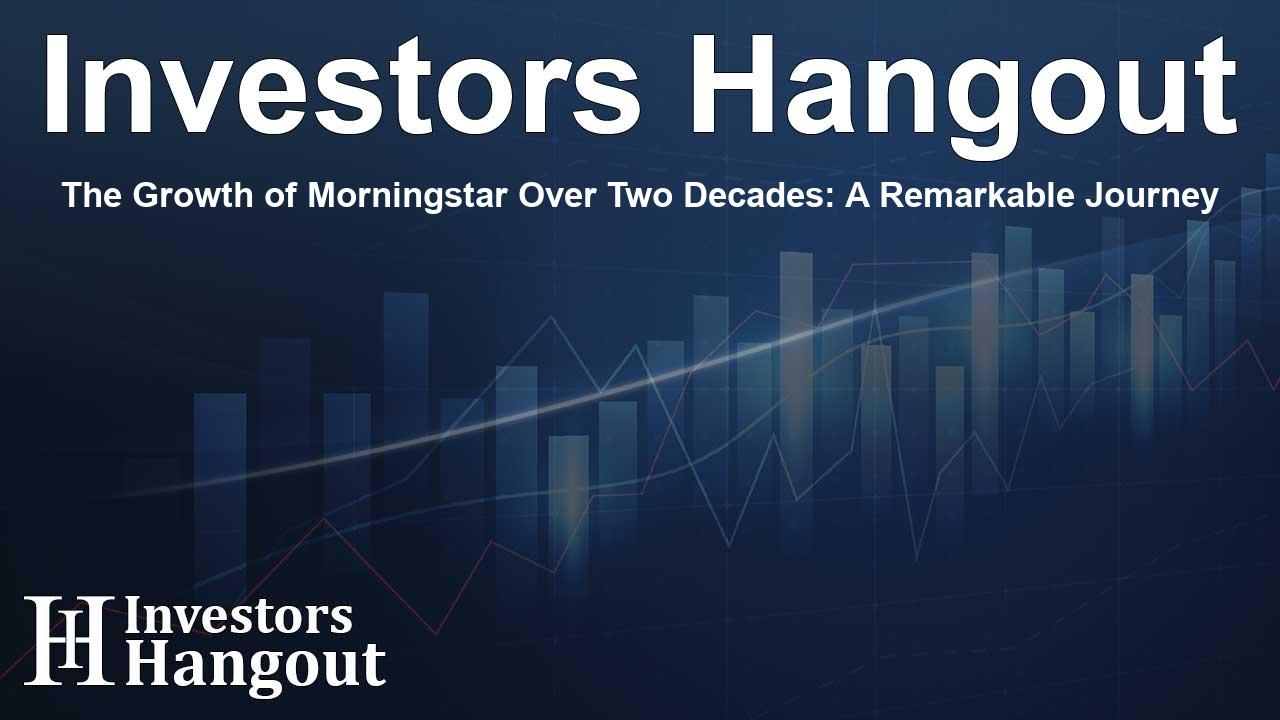The Growth of Morningstar Over Two Decades: A Remarkable Journey

Investing in Morningstar: A Tale of Growth
Morningstar (NASDAQ: MORN) has exhibited remarkable performance over the past two decades, significantly outperforming the broader market. This impressive trajectory reflects an annualized return of approximately 18.13%, culminating in an average annual return of 27.11%. With a current market capitalization of around $9.08 billion, Morningstar has established itself as a formidable player in the financial analytics sector.
The Impact of Compounding Returns
When we delve into the potential outcomes of investing in MORN, the numbers tell a compelling story. An investor who purchased $1,000 worth of MORN stock two decades ago would have witnessed their investment grow into a staggering $126,331.45 today, assuming a share price of $212.30 at the time of this context.
Understanding Compound Growth
The remarkable power of compound growth is a critical takeaway. That initial investment would have steadily accrued gains over the years, illustrating how time in the market can lead to substantial financial growth. Investors often underestimate the long-term effects of compounding, which can significantly enhance savings and investment portfolios.
Morningstar's Performance Metrics
Examining Morningstar's overall performance over the last 20 years provides valuable insights into its resilience and adaptability in the financial landscape. This trajectory is marked by a consistent increase in stock value and the company’s ability to meet the evolving demands of its clients.
Market Capitalization Insights
Currently, Morningstar's market capitalization stands at $9.08 billion. This significant valuation reflects not just the company's growth but also its pivotal role in providing comprehensive financial data and analysis services to investors worldwide.
What Investors Can Learn
For current and prospective investors, Morningstar's journey emphasizes the importance of patience and long-term investment strategies. Compounding returns highlight why starting to invest early can yield impressive financial results over time.
The Bottom Line for Investors
As investors reflect on Morningstar's performance, the key message remains: the sooner one begins investing, the greater the potential for wealth accumulation. The consistent growth of MORN serves as a reminder of the benefits of investing in high-performing assets.
Frequently Asked Questions
What was the initial investment amount for Morningstar?
The initial investment amount mentioned was $1,000 made 20 years ago.
How much is a $1,000 investment in MORN worth today?
A $1,000 investment in MORN would be worth approximately $126,331.45 today based on recent evaluations.
What annual return has Morningstar achieved over the last 20 years?
Over the past 20 years, Morningstar has achieved an annualized return of about 18.13%.
What is Morningstar's current market capitalization?
Morningstar currently has a market capitalization of approximately $9.08 billion.
Why is compounding return significant for investors?
Compounding returns are significant because they illustrate how investments can grow exponentially over time, leading to substantial financial gains.
About The Author
Contact Owen Jenkins privately here. Or send an email with ATTN: Owen Jenkins as the subject to contact@investorshangout.com.
About Investors Hangout
Investors Hangout is a leading online stock forum for financial discussion and learning, offering a wide range of free tools and resources. It draws in traders of all levels, who exchange market knowledge, investigate trading tactics, and keep an eye on industry developments in real time. Featuring financial articles, stock message boards, quotes, charts, company profiles, and live news updates. Through cooperative learning and a wealth of informational resources, it helps users from novices creating their first portfolios to experts honing their techniques. Join Investors Hangout today: https://investorshangout.com/
The content of this article is based on factual, publicly available information and does not represent legal, financial, or investment advice. Investors Hangout does not offer financial advice, and the author is not a licensed financial advisor. Consult a qualified advisor before making any financial or investment decisions based on this article. This article should not be considered advice to purchase, sell, or hold any securities or other investments. If any of the material provided here is inaccurate, please contact us for corrections.
